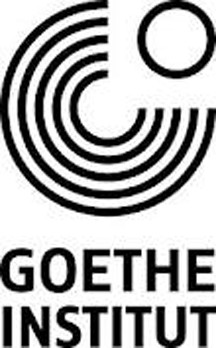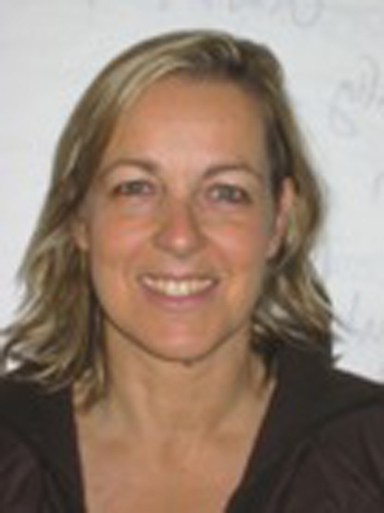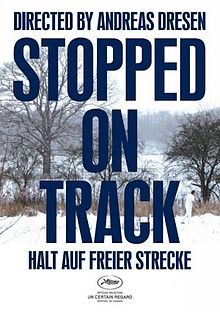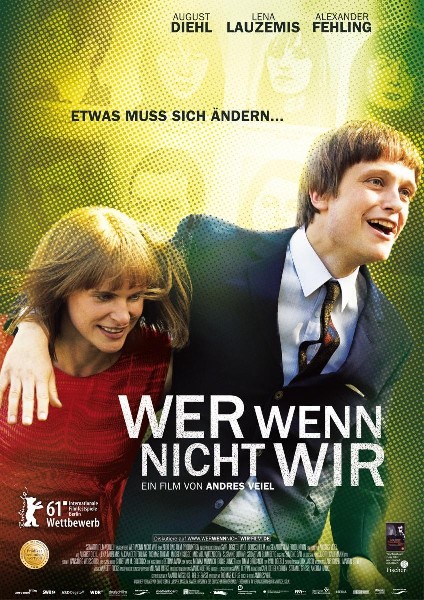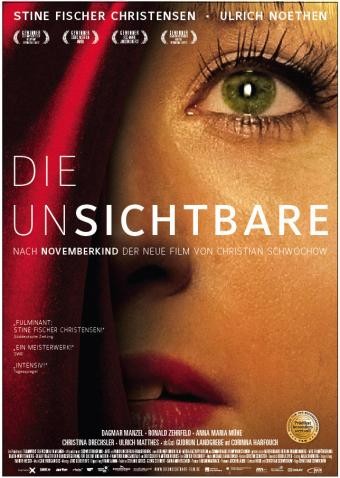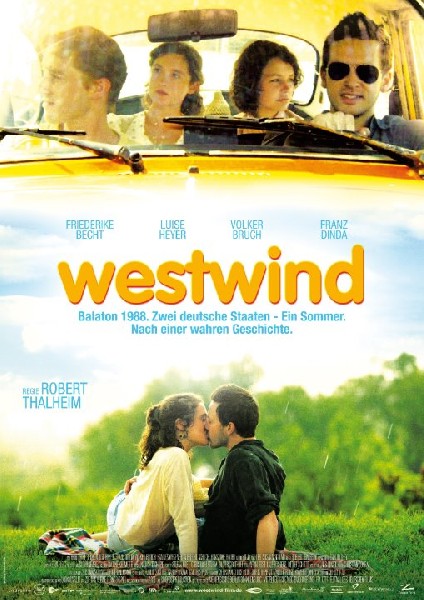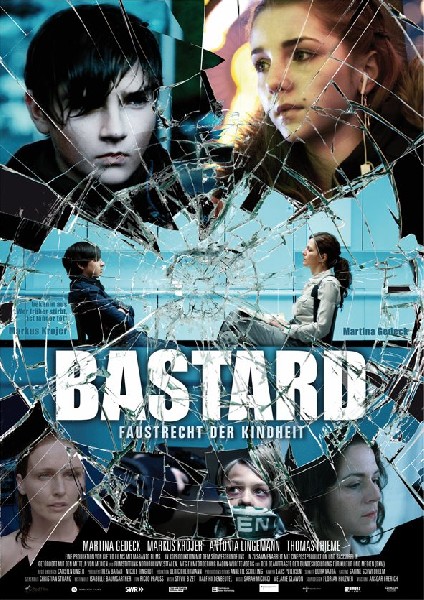Goethe-Institut Boston Film Series
Cutting Edge German Language Films At Coolidge
By: Mark Favermann - Mar 12, 2012
Die Unsichtbare (2011)
Cracks in the Shell
Directed By Christian Schwochow
A well-known theatre director Kasper Friedemann invites Fine for an audition to one of his experimental plays, she convinces him with her acting. But he also sees in Fine a vulnerable individual that matches his vision of the play's heroine, Camille. In order to deal with her first big part, she morphs into another identity.
As Camille, she awakens to her femininity. However, by actually living Camille, Fine also loses her personal strengths in coping with her sister Jule. Like the character Fine inhabits, Camille/Fine is self-conscious and sexually active. At the same time, she becomes mentally fragile and self-destructive.
Along the way, she meets a handsome neighbor who she flirts with and seduces. Eventually Fine puts herself in the seductive hands of her director ("Do you like lamb and mince?"). He in turn lets her go through a personal and dramatic hell without any psychological support.
She plays a dangerous even nearly critical game where her character and her life become entangled in a human mess. Cracks in the Shell is theatre as life and life as theatre. Christian Schwochow follows up his award-winning November Child (2008) with this powerful and gripping journey of ambition and abuse.
Often the subjects of the film series are somewhat dark, but the individual cinematic efforts are always of glowing merit. In each film, there is an undercurrent of German cultural history and contemporary interpretation throughout with creative focus and detail that often underscore a concept of hope and redemption.
Director Tom Tykwer’s 1998 film Run Lola Run seemed to awake the slumbering German film industry. The experimental clever, slickly choreographed ironic comedy about the redheaded Lola speaks to fate, love and chance while embodying the turbulence of the late 1990s. A global audience saw Lola’s daredevil race against time through the streets of Berlin as metaphor for the restless spirit of an era.
For German cinema, it marked the beginning of a revival. For the first time since the era of so-called auteur cinema and Rainer Werner Fassbinder (died 1982), foreign critics once again began to enthuse about the virtues of German films, directors and actors. German film is now enjoying a deserved international success.
In 2003, Caroline Link won an Oscar for Nowhere in Africa and in 2007 Florian Henckel von Donnersmarck won the cherished trophy for his film The Life of Others. Both were screened at the Coolidge Corner Theatre by the way. Also in n 2007, the Cannes International Film Festival awarded its prize for best script and its special prize to Fatih Akin for his film The Edge of Heaven. German film was once again an international force.
The Goethe-Institut Boston film series celebrates the richness of contemporary German films. In January, a film about dying caused by an inoperable brain tumor was shown. The director Andreas Dresen, a regular at the Coolidge, has moved audiences all over the world with his new feature Stopped on Track. Recent German history was featured in the February film, If Not US, Who. Director Andreas Veiel chronicles the beginning of the terrorist movement Red Army Faction and its early protagonist, Gudrun Ensslin.
Cracks in the Shell (German title: The Invisible Person) is set in the theatre. Here, an aspiring, immature young actress is dominated by an overbearing star-director as well as her family life. The black comedy Hotel Lux by director Leander Haussmann coming in April features the notorious Hotel Lux in Moscow during WWII. The film pokes fun at both the Nazi regime and Stalin’s regime of terror. This will be screened in cooperation with the Boston Jewish Film Festival.
Westwind, in May, is an East-West German love story, set shortly before the fall of the Wall. Director Robert Thalheim. He is known to Boston audiences from his previous films Netto and Along Came Tourists and will be present for the screening.
The controversial thriller, Bastard, in June, is about a kidnapping and the revenge of children. As a Bonus feature: in cooperation with Swissnex Boston, there will be a presentation of the Swiss cult hit The Sandman in June, an odd comedy on relationship problems.
The Goethe-Institut is the cultural institute of the Federal Republic of Germany with a global reach. It promotes knowledge of the German language abroad and fosters international cultural cooperation. It is set up to convey a comprehensive picture of Germany by providing information on Germany's cultural, social and political life.
Through a network of Goethe-Institutes, Goethe Centres, cultural societies and reading rooms, alongside its examination and language learning centres, it performs the principal tasks of cultural and educational policy abroad.
Drawing on the rich variety of all areas of Germany's lively culture, it functions as service providers and partners for everyone taking an active interest in Germany, the German language and culture. Though acting as a German cultural affairs office, the Goethe-Institut acts independently with no political affiliations.
The Goethe-Institut German film series is one of the cultural gems of Boston. Individual tickets cost a bargain $5. The series begins in the fall and goes through June. At the Coolidge Corner Theatre in Brookline, MA. For a schedule, contact www.goethe.de/boston.

